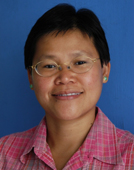
Various perception studies conducted by scholars over the past few years (Lucarelli and Fioramonti; Holland, et al.) on the European Union’s external image have revealed that it is largely seen as an economic or trading power, but is not widely perceived to be a world power or significant global player. The EU remains predominantly an economic player in Asia and is ASEAN’s second largest trading partner.
While the EU has been seen positively as a supporter of multilateralism and a model of regional integration, the events of the last two years are likely to have eroded some of these perceptions. The handling of the euro zone’s sovereign debt crisis has dented the image of Europe as an economic power, and the rise of China and India and the perceptible shift of power eastward have meant that Europe is also increasingly perceived by Asians as an area in decline.
Yet interestingly, the EU has until recently continued to see itself as a normative power and an inspiration in the area of region-building, and has been guided by the belief that European influence in Asia lies in the exercise of soft power. Unfortunately, this self-perception does not quite resonate in Asia where power (both hard and soft) backed by strategic thinking and vision is more important, and is perhaps one of the key reasons for the lack of real progress in creating a genuinely fruitful Asia-Europe partnership. Hartmut Mayer (2009) in an article entitled “The Long Legacy of Dorian Gray: Why the EU needs to redefine its role in global affairs” argues that for Europe to remain relevant and useful as a global actor, it must move away from “self-centredness” and “de-Europeanise” itself.
This said, in Southeast Asia, where region-building has gone the furthest in the form of the Association of Southeast Asian Nations (ASEAN), European integration has been studied closely and perhaps even admired by some, particularly within the civil society and people sectors.
EU-ASEAN has a longstanding partnership dating back to the early 1970s and formalized in 1980 with the signing of the Cooperation Agreement during the 2nd ASEAN-EC Ministerial Meeting. Yet, unfortunately, there is also widespread perception that the EU under-estimates the importance of ASEAN in Asia. ASEAN has always been a low priority for the EU, and though trade and investments between the two regions have grown over the years, the quality of the relationship has remained less than optimal. EU-ASEAN relations have suffered from EU’s obsession with the rise of China and the sanctions on Myanmar. Despite the rhetoric of developing an equal partnership between ASEAN and EU in the 1990s, and professing that EU-ASEAN relations would be the cornerstone of the EU’s engagement with broader Asia in the 1994 EU policy paper on “Towards a New Asia Strategy”, ASEAN felt neglected by the EU. This reflects the EU’s lack of strategic understanding of the region and the centrality of ASEAN in the emerging regional architectures within the broader Asia-Pacific.
The post-Lisbon EU despite all the aspirations expressed in the Lisbon Treaty to make the EU more coherent and visible continued to be perceived as hesitant and reactive and one uncertain of its role on world stage. It is perhaps unfortunate that the global financial crisis and sovereign debt crisis hit came at a time when the Lisbon Treaty came into force. Yet, at the same time, it perhaps underline the fact that with all the legalistic and formal treaty changes, without political imagination and political will, and a truly European strategic vision of the world around beyond the EU, the EU would never be viewed as a serious global player, and indeed the very idea of an EU foreign policy could be questioned.
By Dr. Yeo Lay Hwee
Director, European Union Centre in Singapore



